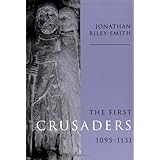
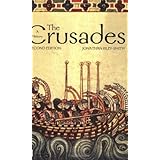
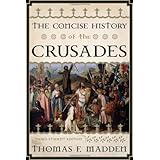
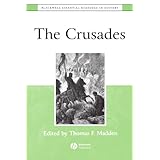
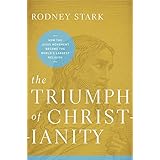
The Crusades are often considered as a "black stain in the history of the Catholic Church," all about "power and popes," and remain our "memory of a long European onslaught." Yet, there are many misconceptions regarding this time in history. The prevailing thesis, at least given by Edward Gibbons is that the Crusades were primarily due to the concept of "surplus sons" These surplus sons were "members of noble families who would not inherit and whom the heirs found it increasingly difficult to provide with even modest incomes" (Rodney Stark, The Triumph of Christianity, 215). Rather than promote this theory, Stark gives us the truth that Crusades were possible only because this period was one of great economic growth, putting more resources in the hands of the ruling elite in Western Europe (221). Further, it wasn't the surplus sons who went but the heads of upper-class households who had the wealth to raise money for the knights and infantry (kings, princes, counts, dukes, barons, and earls). The enormous expense of the Crusades caused some of the upper-class heads to sell off land, some going into bankruptcy to go crusading.
In terms of our view of history, including the Crusaders and the Muslims involved in the fighting, we often forget how brutal and intolerant the Muslims were. Muslim forces began taking over Christian provinces soon after Muhammad's death, in 635-640 many areas were seized by Muslim forces, including Syria. Stark writes, "Thus, by the time of the First Crusade, Christendom had been fighting a defensive war with Islam for more than 450 years! (217). In the 11th century, Seljuk Turks converting to Islam found it their job to harass, sell into slavery, and torture those Christian travelers on their way to Jerusalem along the Anatolian villages. We have this speech by Pope Urban II upon his gathering the crusaders together,
"Many of God's churches have been violated...they have ruined the altars with filth defilement. They have circumcised Christians and smeared the blood on the altars or poured it into baptismal fonts.It amused them to kill Christians by opening up their bellies and drawing out the end of their intestines...What shall I say about the abominable rape of women?"
One of the cruelest and devastating losses by the hands of Muslim forces was the taking of Antioch after the 1266. The Sultan of Egypt, Baybars (also Baibars). Baybars ordered all inhabitants, including all women and children, killed or enslaved,..it is estimated that 17,000 men were murdered and tens of thousands of women and children were marches away as slaves (231). This picture gives us a more balanced perspective, rather than pointing only to the Crusaders as barbaric and bigoted and the Saracens as praiseworthy and chivalrous.
Why did the knights of Europe involve themselves in the Crusades?
For one, there was a perceived need for penance and the other reason was to liberate the Holy Land (222). It was not the case that the Crusaders were only defensive, rather "A major reason pilgrimages were so common was because the knights of Europe were both very violent and very religious (222)." One of the most notorious pilgrims was Fulk III (972-1040) who made 4 pilgrimages to the Holy Land, due in large part because Fulk was a plunderer, murderer, robber, and a swearer of false oath," even having his wife burned to death in her wedding dress (223).
The unworthiness that a knight would have felt would've been enough to push him to make a pilgrimage to the Holy Land. Further, the pope himself assured crusaders that a pilgrimage would wash away their sins, and at the same time they could rescue the Holy Land against sacrilege and invaders.
For more reading beyond Stark's book called The Triumph of Christianity, the fine work of Thomas F. Madden (Professor of History at St. Louis University) is worth reading. His books are numerous but here are a few worth mentioning:
The Concise History of the Crusades
The Crusades: The Essential Readings
And, the work of Jonathan Riley-Smith is also worth reading:
The Crusades: A History
The First Crusaders: 1095-1131
Comments
Post a Comment